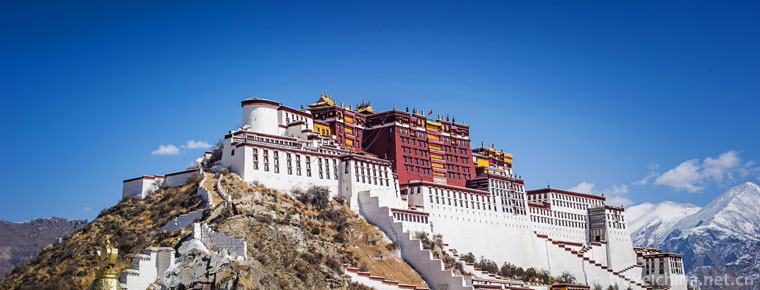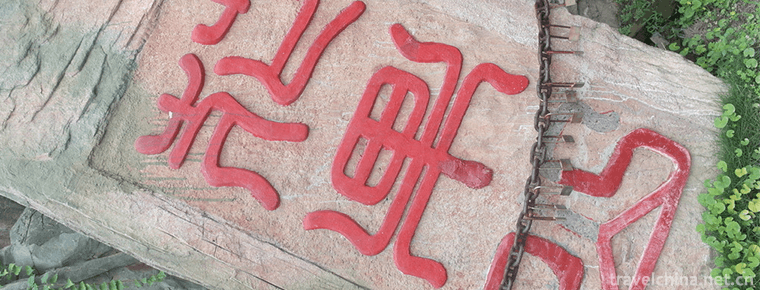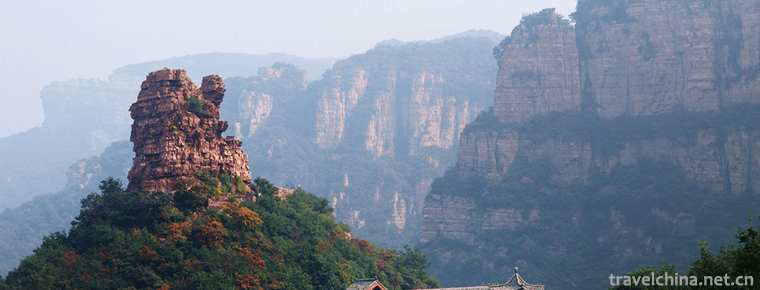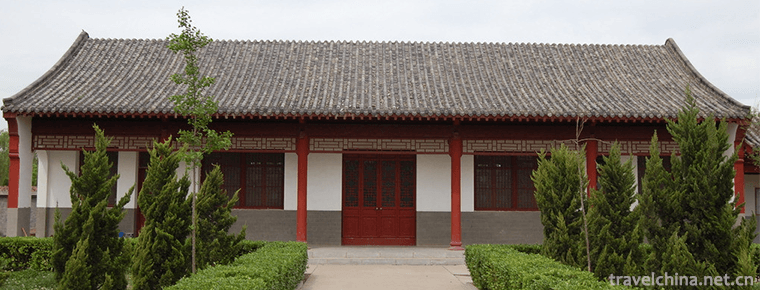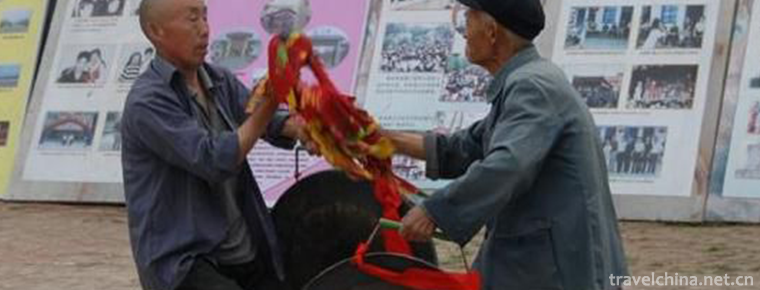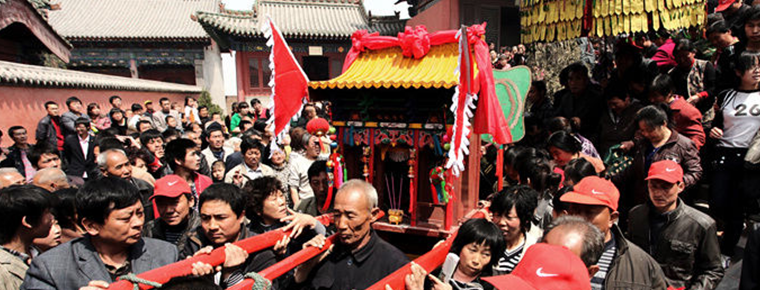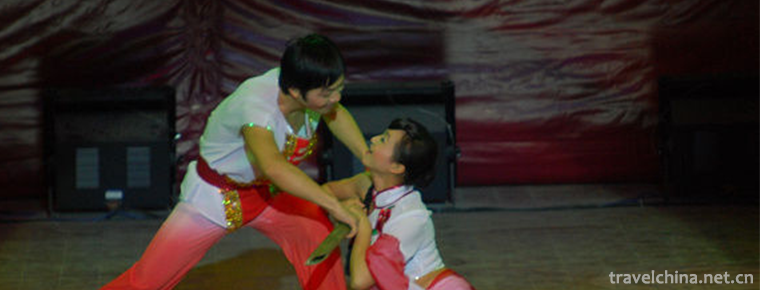Dai opera
Dai opera
Dai Opera, one of the national intangible cultural heritage, is a traditional drama in Jingpo Autonomous Prefecture of Dai Nationality in Dehong, Yunnan Province.
Dai opera originated from the Dai people's singing and dancing performances and Buddhist scriptures with certain character plots. After absorbing the artistic nutrition of Yunnan opera and shadow play, it gradually formed a relatively complete form of opera. Dai opera is dressed in Dai costume in its performance. It integrates the gait of Dai folk dance with the accompaniment of gourd silk, erhu and elephant foot drum. The national style is more strong.
On May 20, 2006, Dai Opera was approved by the State Council of the People's Republic of China to be included in the first batch of national intangible cultural heritage lists with the heritage number IV-86.
historical origin
origin
During the years of Jiaqing (1796-1820) and Daoguang (1821-1850), Ganya (Yingjiang), Tengyue (Tengchong), South Myanmar (Lianghe) and Bamo, Myanmar had frequent business trips and prosperous economy and trade, which became the golden passage integrating politics, economy, culture and transportation. During this period, people from the Mainland came here to make a living, to do business and to gather artists all the year round, and the Northern Shadow Opera, a kind of drama, also spread to the dry cliff area, and affected a local Dai folk performance called "transliteration". Thus, it laid the embryonic form of early Dai opera.
Development
During the Guangxu period of the Qing Dynasty (1875-1908), Dai Opera really made great progress. The main reasons are as follows: Firstly, after the Yunnan Opera Band came to Dehong to perform, it had an impact on the further development of Dai Opera. The second is the attention and support of the Mong Tusi to Dai Opera. In the ninth year of Guangxu (1883), Dao Yingting, 23 Xuanfu of Ganya, was invited by Tengyue (Tengchong) to perform in Ganya by Yulin Ban of Yunnan Opera and to teach Dai Opera actors skills. In the same year, Dao Anren (1872-1913), the son of Dao Yingting, inherited twenty-four ministers of propaganda. He attached great importance to the development of Dai Opera. In the fourteenth year of Guangxu (1888), he set up a male and a female Dai drama troupe in the department. He also set up a Dai drama writing class. He arranged, adapted and performed a series of plays, such as "A Nuan Xiangmai", "Tao He Sheng" and "Zhuangzi's Wife Testing". In the 16th year of Guangxu (1890), when Dao Anren got married, he invited Fushou Ban of Yunnan Opera to perform in Ganya. At the same time, Yunnan Opera Troupe artists are invited to teach performance skills and martial arts in the department. They also send Shai Tizu, Li Bao and others to Tengchong to study percussion Gong and drum scriptures. According to historical records, during the period of Fong Zhengde (1879-1913), the 25th Tusi Chief of Luxi Department, he also sent Lang Erbao and others to Tengchong to study martial arts and percussion music.
During the period of the Republic of China, the Dai Opera further developed. Every Department of the Dai Opera Department held grand performances in the event of wedding ceremonies, printing, Spring Festival or other major festivals. Dai Opera troupes were also set up in large and small villages among the people. During this period, more Dai operas were added, such as "Pink Makeup Tower", "Lang Gaohan", "Pan Silk Cave", "Han Guangwu", "Wang Mang usurped the throne" and so on.
The real prosperity and development of Dai Opera came after the founding of the People's Republic of China. In 1953, the People's Committee of Dehong Dai Jingpo Autonomous Prefecture was established. The Party and the government supported the development of Dai Opera.
In the 1960s, Dai Opera was also a flourishing period in the countryside of the whole prefecture. In the cultural rooms and clubs of Dai Township, there were creative rehearsals of Dai Opera. All counties have trained a number of creative personnel, backbone teams of Dai opera actors and bands. Fapa Village in Luxi County has a large band and complete musical instruments. For more than 30 years, it has been carrying out intermittent activities to accompany Dai Opera performers of several generations in the village.
During the "Cultural Revolution" (1966-1972), Dai opera was banned and its organization was revoked. Dehong Prefecture merged with Baoshan District, and the State Song and Dance Troupe also merged into Baoshan District Arts and Works Troupe. Only two members of the State Dai Opera Team were merged into the Baoshan Cultural and Cultural Corps. The rest of the team participated in the socialist education movement at that time, and their business activities ceased.
In 1972, after the restoration of Dehong Prefecture, the Dehong Prefecture Song and Dance Troupe was also restored. In 1974, the Dai Opera Troupe established a Dai Opera Group. In 1974, the Dai Opera Troupe created and performed a small Dai Opera "Shaddock Blossom". It transplanted and performed the modern Peking Opera "Red Lantern Record" selection of "Painful Talking about the History of Revolutionaries" and "Wisdom Taking Weihu Mountain" selection of "Deshan Inquire bitterness". The professional propaganda teams and amateur Dai opera teams in various counties also compiled and produced a number of Dai operas according to the situation at that time.
In December 1978, after the Third Plenary Session of the Eleventh Central Committee of the Communist Party of China was held, Party committees and government departments at all levels earnestly carried out the policy work and mobilized the enthusiasm of Dai artists. Professional and amateur Dai opera activities flourished again, and performances in various places began to flourish.
In December 1979, according to the decision of the State Party Committee, the Dai Opera Team was restored in the State Song and Dance Troupe. The artistic teams of Luxi and Yingjiang counties have been rebuilt and restored successively, laying a foundation for the revival of Dai opera art.
Cultural characteristics
Aria tune
The basic tunes of Dai opera are based on Dai folk songs, folk songs and dances, and religious narrative songs. They are divided into two types: plume tunes and levy tunes. The plume tunes are mainly popular in Yingjiang, Lianghe and Longchuan areas. The levy mode is mainly popular in Luxi. In Mangshi and other towns, the feather tune is male and the fine tune is female. Then it evolved into small cavity, old cavity, Cao Wang cavity (pure cavity) and female tragic cavity. Singing as a form of apprenticeship, only percussion accompaniment dance and foil the atmosphere.
Musical Instruments
In the early stage, Dai opera instruments included foot drums, anchor gongs, cymbals and so on. Later, they absorbed the gongs, cymbals, Tanggu and bowl gongs of Yunnan opera.
Form of performance
The performance of Dai opera is mainly composed of singing, and most of the sentences in the duet are not spoken in white, regardless of length. Actors sing at the stage table according to the master's lyrics, not much action, only according to the master's prompt to change the stage position. During the interval of singing, accompanied by percussion accompaniment, take two or three steps, and do some simple actions that have nothing to do with the content, such as dancing fans of actresses and gestures of male actors. When there are horseback riding, boat riding and fighting, they concentrate on dancing performances and have certain formulas. As long as the general public learns to sing, they can perform on stage.
Dress up
In the costume of Dai opera, Dai characters are dressed in slightly beautified Dai costumes. Acting Han characters, the actors wear Han opera costumes, some wear Dai ancient personage helmet, and the actresses wear Dai costumes and silver jewelry. Pure and ugly characters draw simple faces and old people wear beards.
Representative repertoire
Some of the traditional plays of Dai opera originate from Dai folk stories, narrative poems or Buddhist Sutra stories, such as Xiangmai, Thousand-petal Lotus Flowers, Longtihan, etc. Some of them are translated and transplanted from Han operas, such as Zhuangzi's Wife Testing, Manlu Temple, Yang Men-njian, etc.
Inheritance and protection
Inheritance value
Dai opera is a comprehensive performing art which integrates Dai literature, music and dance, and has distinct Dai characteristics. The literary scripts of Dai Opera, like the long Dai narrative poems, are deeply loved by the people of the Dai nationality and have high literary and artistic value. Therefore, Dai opera also occupies an important position in the history of Dai literature.
Inheritance status
The Dai Opera faces the following two difficulties:
One is the lack of talent in Dai Opera. With the increase of the performance tasks of the Dai Opera Troupe, the decrease of the number of performers and the lack of creative talents in the troupe, there has been a phenomenon of indifference between green and yellow. Under the impact of the Han culture, many young Dai people can write and understand Dai script very little. The Dai Opera Troupe can not recruit good Miaozi for the performance of Dai Opera. The inheritance of Dai Opera is facing the dilemma of cultural gap and talent gap.
Second, there is a lack of funds. It mainly includes three aspects: artistic creation, talent training and inadequate funds for non-heritage protection. As for artistic creation, the Dai Opera Troupe bears the important responsibility for the inheritance, protection, dissemination and development of Dai Opera. However, because the non-heritage protection of Dai Opera is implemented by the State Cultural Museum, the center can not get the relevant funds, and there is no special funds for artistic creation and opera delivery to the countryside, resulting in Dai Opera artists. The production is seriously lagging behind, the number of performances is limited, and it is difficult to meet the needs of the masses.
Inheriting characters
Dao Baoshun, male, Dai nationality, born in Yingjiang, Yunnan in 1937. The second batch of national intangible cultural heritage projects are representative successors of Dai Opera.
Jin Xingming, male, Dai, born in 1944, is a member of Jingpo Autonomous Prefecture of Dai Nationality in Dehong, Yunnan Province. In June 2009, Jin Xingming was selected as the representative successor of the third batch of national intangible cultural heritage projects, and declared in Jingpo Autonomous Prefecture of Dai Nationality in Dehong, Yunnan Province.
protective measures
The measures of inheritance and protection of Dai Opera:
First, we should pay attention to personnel training. Since 2011, the Dai Opera Center has adopted a two-legged approach. One is to train Dai opera talents by sending them out. The central actors with high cultural and artistic accomplishment, creative ability and performing ability are sent out for cultivation. The emergence of "Peacock Princess" Wan Xiaosan, Yunnan performing artists from high, national first-level playwright Yang Shuzhong, Yunnan Province outstanding young actors Ping Ying and a number of outstanding talents, new Dai opera people continue to stand out, for the inheritance and development of Dai opera injected new vitality. The second is to inherit the performance skills of Dai Opera in the form of old and new teachers. From 2011 to 2015, the center trained more than 50 new generations of Dai Opera inheritors by using old actors to teach new students'performance skills.
The second is to strengthen the theoretical research of Dai Opera. It took four years to compile a 420,000-word Dai Opera Course, which integrates the theoretical research and demonstration teaching of Dai Opera into one, with rich illustrations and texts, in 2014, so that the performance of Dai Opera can be based on, and the drama can be followed, thus pioneering the theoretical research and teaching demonstration of Chinese minority drama.
Third, we should strengthen the training of amateur Dai Opera Troupes (teams) at the grass-roots level. The center takes advantage of the opportunity to send operas to the countryside to perform Dai operas in grass-roots villages and train amateur Dai opera troupes so that more people can identify with the traditional culture of their own nation and not forget their own culture, which is also a powerful means of inheriting and protecting Dai operas. Since 2011, three batches of amateur Dai Opera training courses have been held in rural areas of the prefecture, with 265 trainees, 18 rural amateur literary and artistic teams coached and 30 small operas arranged.
Fourthly, we should rescue traditional dramas and publish Selected Excellent Dai Dramas. The 12 classic Dai operas of E and Sangluo, Thousand-petal Lotus, Lang Tihan, Haihan, Bamboo Tower Deep in Love, A Lu Xiangxue, Twelve Princesses'Eyes, Mao Bow, Line Show, Zhao Ma He, Nan Xila and Dao An Ren were collected and published jointly with Yunnan Academy of Arts Drama Academy.
social influence
Honorary commendation
In 2004, Dehongzhou Dai Opera Troupe produced and performed an excellent work, the large-scale Dai Opera "Longxi Na". The play won a comprehensive gold medal for its outstanding performance at the 2004 Yunnan New Drama Exhibition.
In March 2007, in view of its contribution to the development of Dai opera and the promotion of national culture, the Chinese National Minority Drama Association awarded the Grand Prize of "Golden Peacock" to "Longxi Na".
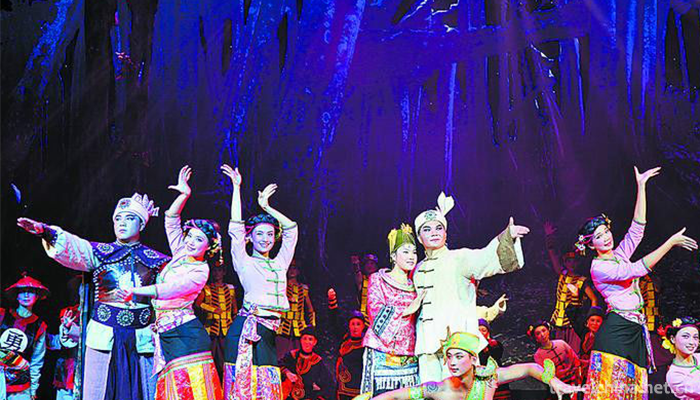
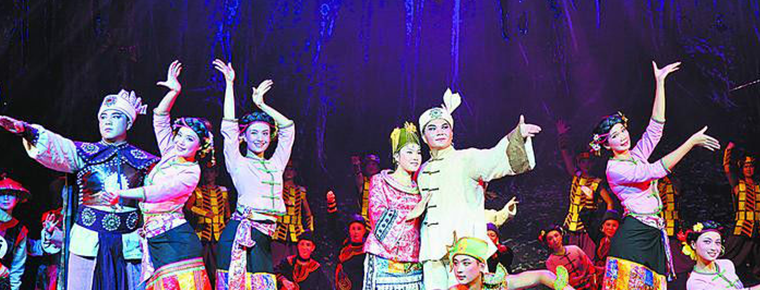
Dai opera
-
Great mercy Pavilion Plain noodle
Great mercy Pavilion Plain noodle, originated in Zhaitang of Daci Pavilion Chan Yuan in Baoding City, Hebei Province, has a history of 800 years.
Views: 258 Time 2018-11-27 -
MountHuaguoshan
Mount Huaguoshan (Lianyungang Huaguoshan Scenic Area) is located at the middle foot of Nanyuntai Mountain in Lianyungang City.
Views: 304 Time 2018-12-06 -
Wucai Beach
The Wucai Beach is located in Buerjin County, Altay area, north end of Xinjiang. It is located on the first and second terraces on the North Bank of Ertiz River, the only one injected into the Arctic
Views: 130 Time 2018-12-22 -
Checkerboard Mesa Qipanshan Mountain
Qipanshan is located in the northeast of Shenyang City, adjacent to Fushun in the east, Hunhe in the west, Tieling in the South and Hadaling in the north. It is located
Views: 251 Time 2019-02-07 -
Yicheng Temple Scenic Spot of Sun Bin Tourist City
Sun Bin Tourist City is located in Jishan Town, 20 kilometers northeast of Juancheng County, Heze City, Shandong Province. Juancheng is the hometown of Sun Bin, a famous
Views: 98 Time 2019-02-13 -
The official will ring Gong
Official Guild gongs are widely spread in rural areas of Eastern Henan Province. It is a traditional percussion instrument with brass gongs as props. It has a history of more than 300 years
Views: 114 Time 2019-05-01 -
Hongdongs custom of visiting relatives
The custom of walking relatives in Hongdong is a kind of Han traditional folk culture which spreads in Ganting, Wucun, Xincun, Longma and Wanan townships
Views: 145 Time 2019-05-03 -
Yihuanghe Bar Dance
Hebang dance is popular in Hedong area of Yihuang County, Jiangxi Province. It is a kind of traditional folk dance developed by mountain people from generation to generation, chopping branches on the
Views: 280 Time 2019-07-12 -
Summary of Deyang
In 2018, Deyang's GDP reached 221.39 billion yuan, an increase of 9.0% over the previous year at comparable prices. The total economic output has exceeded 200 billion yuan, with per capita GDP of 62569 yuan. Among them, the added value of the primary industry
Views: 350 Time 2020-12-14 -
Neijiang folk culture
Bull lantern dance is popular in Yuexi. One dressed as a shepherd boy and two dressed as cattle with cow shaped props. In the sound of gongs and drums, the shepherd boy first said doggerel to the audience to express the festival's congratulations, and then
Views: 367 Time 2020-12-16 -
Nanchong economy
In 2019, Nanchong's GDP will reach 232.222 billion yuan, an increase of 8.0% over that of 2018. Among them, the added value of the primary industry was 40.425 billion yuan, an increase of 2.9% over 2018; the added value of the secondary industry was
Views: 357 Time 2020-12-17
